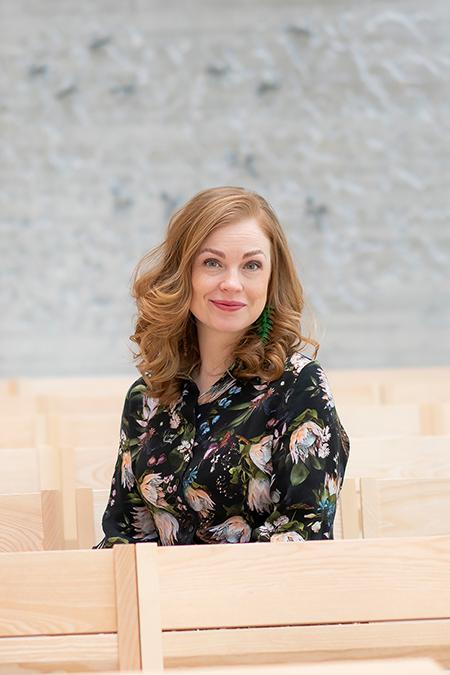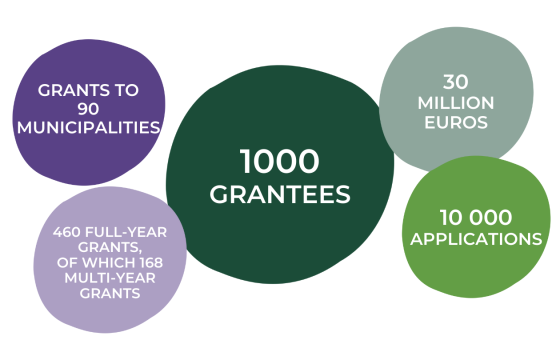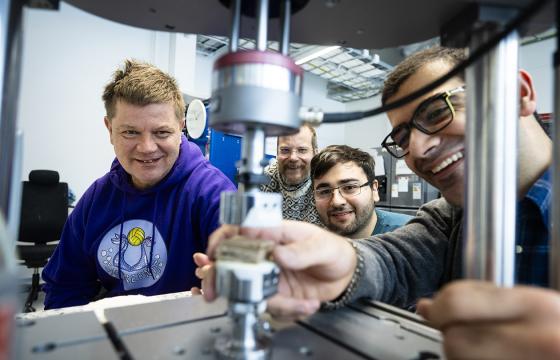
Text: Essi Kähkönen
Photos: Petri Summanen
“Now men are talking!” “Men need to be heard.” These are a couple of examples of headlines in the media from recent years. They summarise the need to start a discussion about Finnish men and the expectations, norms, and ideals attached to them in modern society.
A four-year project at the University of Eastern Finland, led by doctor of theology and university lecturer Sini Mikkola, is contributing to this conversation. The Finnish Cultural Foundation awarded the project a grant of 242 000 euros in 2024.
“The aim of our project is to examine the Lutheran background of the ideals and norms of masculinity from the 16th century all the way to the first decades of the 1900s. We believe that the historically strong position of the Lutheran church and religion has been relevant in terms of the expectations attached to the male gender.”
Norms of masculinity from several centuries
The project studies the formation of the ideas of masculinity, starting with Martin Luther’s Germany and then moving on to Finland from the 17th to the 19th century.
“We look at the expectations that not only priests, professors, and politicians but also ‘ordinary’ people in less influential positions set for masculinity, how these expectations were met, and what the role of religion was in defining masculinity.”
Along with Mikkola, the project is carried out by PhD Miia Kuha, MTh Tapio Leinonen and DTh, BA Hanna Pöyry. They all cast light on the historical legacy of the Finnish perception of men.
“Manhood, masculinity, and the associated customs, beliefs, and norms aren’t born in a vacuum; they take a long time to form,” Mikkola notes. “That’s why they are worth studying from a historical perspective.”
The effect of Luther and his thoughts on vocation
Mikkola says that Lutheranism and the expectations linked to masculinity are strongly connected, even in everyday speech. The Lutheran work ethic is one example of this.
“It has shaped the Nordic and thus also Finnish norm of a man as a hard worker and uncompromising bearer of responsibility. The basis of the concept of work ethic lies in Luther’s idea of a worldly vocation. Luther was of the opinion that whatever a man’s profession was, the command and call to work came from God.”
Although the idea of a Protestant work ethic is originally from Max Weber, Mikkola notes that Luther’s understanding of vocation must have influenced the norms of masculinity associated with Nordic men.
“However, many normative ideas have roots even further back in history.”
The era of national romanticism valued strength
According to the long-standing norms of masculinity, a decent man takes care of his family, thinks rationally, shows leadership, and is the head of his family.
“Of course, the extent to which these ideals have been realised in the lives of individual men is another matter. Ideals and reality rarely go hand in hand.”
During the period of national romanticism in the second half of the 19th century, the expectations and ideals attached to men were somewhat diversified in Finland, as Fennomania was rising its head in the Grand Duchy of Finland ruled by Russia.
“For example, in his poetry Zacharias Topelius highlighted a fit and healthy young man, simultaneously humble and God-fearing but also a strong and righteous defender of his home and mother. The opposite example was of a weak wimp hiding behind his mother, not deserving of respect.”
Demand for modern men’s studies
Throughout history, Mikkola says, man has been the absolute of humanity. When a man is considered a representative of humanity in general, the fact that his experiences and thoughts are also determined by his gender is often neglected.
“Men’s studies have examined this gender-blindness and begun to uncover the different kinds of norms related to masculinity, their producers, and the structures that maintain them."
Men’s studies are becoming increasingly prevalent, but masculinity has been studied far less than femininity.
“I believe that the critical examination of masculinity and its norms is an act of equality, too. People grow into both manhood and womanhood in a similar way, by adjusting socially to the expectations of their environment.”




